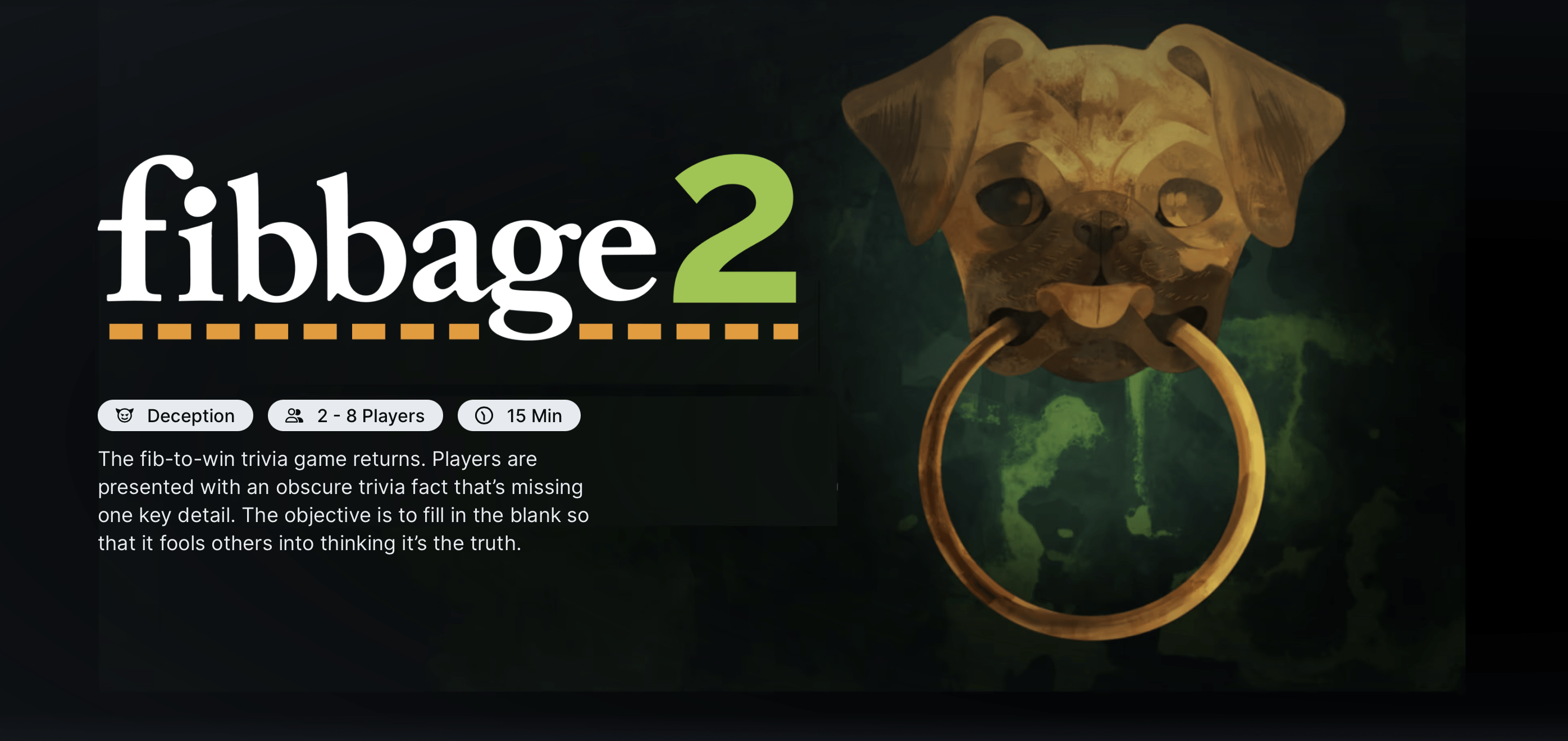Fibbage 2 is a Steam and browser-based deduction game by Jackbox Games in the second party pack. I played with two of my friends on a weekend night, though it’s definitely a game that can be played with anyone teen and older.
Each turn of Fibbage 2 has two phases. In the first, all players craft and submit a false statement to fill in the blank of an obscure trivia prompt. Then, they are presented with a list of options and must determine the truth among the submitted lies. Players are awarded 500 points for each person that selects their lie and 1000 points for selecting the truth.
While the main objective is to uncover the truth, a more common strategy is to discern which options are more likely to come from the other players, which is what I did. The magic circle of Fibbage 2 blurs, especially when the players are familiar with each other. In our game, there was a question that said, “A tradition since 1981, NASA celebrates successful launches, oddly enough, by ____.” Since I didn’t know the answer to the trivia, I tried to predict which ones were submitted by my friends. While I thought that “sending someone to sea” was very clever, it seemed like it was too convenient of an answer, something my friend would do. Eliminating my option and one I didn’t find too interesting (orange juice), I deduced correctly that the truth was probably “eating beans.” 1000 points for me!
It also works the other way around as well. The final round was worth triple points, so I knew I had to fool my friends if I wanted a shot at winning. The prompt was “A non-trendy product that the Beverly Hills was known for in the 19th-century.” I knew that one of my friends would associate Beverly Hills with makeup, so I added some surprising adjective and submitted “blood lipstick.” Though it didn’t give me enough points to win, fooling that one friend gave me a sense of power and achievement. As such, Fibbage 2 creates moments of triumph and rivalry.
Furthermore, its multiple rounds with escalating stakes helps to maintain competitiveness and engagement for players. Initially, I fell for my friends’ tricks several times until I understood the game’s true objective. In the first few questions, I consistently chose my friends’ answers and remained at 0 points throughout the first round. However, in the second round, points doubled, and the final round tripled them. The mechanism shifts players’ focus from score gaps to understanding their peers’ thinking and building competence. In the first round, I had to gauge not only how absurd the truth was, but also what my fellow players believed it to be.
Moreover, by choosing to make the trivia questions more obscure, the designers allow non-trivia fans to also feel the sense of achievement as well. There’s double the satisfaction from selecting the truth, not only because it was the right answer, but because it meant that you didn’t give other players points either.
One critique I would have is that there is a limit to how much you can play the game. Given that there is a limited question bank, after several rounds with friends, a player might begin to recognize the questions and recall the answer, thus defeating the secondary objective of the game to understand fellow players. I would suggest that players be able to add their own obscure facts as well to expand the question bank.




